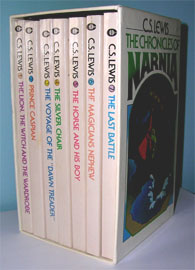Handshake or No Handshake
NBC's web site offers a Flash version of Deal or No Deal, an odd new game show that pits a player's greed against the arithmetic mean.I've only caught a few minutes of the show, which aired last week and will be repeated Monday on CNBC, but I may start watching to see Howie Mandel not shake hands with the contestants.
Mandel's a germophobe, writes Mark Evanier:
I think it's weird that NBC has one reality show where the contestants are expected to eat rat --------- but they also have two -- this and Mr. Trump's Apprentice -- where the stars are terrified of germs. You know, Howie and Donald, touching other people is a great way to maintain good, healthy hair. Look at the difference between the scalps of Leno and Letterman.
That's a far cry from Richard Dawson, who used to grout the esophagus of every female contestant on Family Feud.
Wikipedia Needs Women
Shelley Powers believes that well-known female technologists are less likely to find themselves in Wikipedia than their male counterparts:Why are there significantly fewer women? I think one reason is that we women are taught not to put ourselves forward. Men are complimented for tooting their own horn; making known their wishes; noting their own accomplishments. Women, however, are expected to be sweet, demure, and most of all, stay ever so slightly in the shadow.
My take on her observation is that men are more strongly rewarded for being assertive, a group dynamic you can see in play often if you look for it. A few years ago I lost a bunch of weight by following Weight Watchers, and the weekly meetings I attended were an intrusion into a world that had as many males in it as an Oprah Winfrey taping. Even in a crowd that was 20-to-1 female, I was amazed at how often male dieters dominated the discussions.
(Personally, I was afraid to speak, fearing that some of the dieters starving themselves for the weekly weigh-in might had sublimated their hunger with inchoate rage.)
I'm fishing around for underrepresented subjects in Wikipedia, so I added a biography this morning for one of those overlooked technologists -- new-media guru and former Netscape exec Susan Mernit:
Susan Mernit (b. January 23) is a technology and media consultant based in Palo Alto, California and a former vice president of Netscape and America Online.
As an executive, Mernit launched several corporate media sites since introducing Scholastic Press on America Online in 1992. She developed the childrens educational site Yuckiest Site on the Internet with Jeff Jarvis and served as the editor of New Jersey Online.
She was a vice president of programming, design and production at Netscape from 1999-2001, leading a redesign of the site to coincide with the release of Netscape Navigator 6.0, and was vice president of programming at America Online from 2001-2003.
Today, she's a founding partner of the consulting firm 5ive Corp and a frequent speaker at online media and technology conferences, personally organizing the "social media" gathering BlogOn in 2004. She is a senior fellow at the Media Center, a think tank established by the American Press Institute, and an advisory board member of the the digital media archive Ourmedia.
Mernit originally pursued a career in literature, writing two collections of poetry and serving as writer-in-residence for the Teachers & Writers Collaborative. Her short story "Bella" was adapted into a TV movie in 1982. She has a bachelor of arts in English and writing from Bard College and a master's in creative writing and English literature from Ohio State University.
She was married to musician Spencer Jarrett and has a son, Zack, who attends Michigan State University.
Bibliography
- Everything You Need to Know About Changing Schools (Rosen Publishing, 1992) ISBN 0823913260
- Tree Climbing (Membrane Press, 1981) ISBN 0879240369
- The Angelic Alphabet (Tree Books, 1976) ISBN 8267436752
External links
- Mernit's personal weblog
- Her photos on Flickr
- 5ive Corp.
- Poems from Tree Climbing.
Putting together a biography based only from the information you can find on the web is an interesting literary exercise -- I once frightened people on MetaFilter by compiling one entirely from a member's comments.
The Lion, The Witch and The Arms Dealer
I took the boys last night to see Chronicles of Narnia: The Lion, the Witch and the Film Franchise We Hope Will Be a Cash Machine Like Harry Potter. The film's a wonderfully realized vision of the book, at least through my hazy recollection of tearing through all seven novels 25 years ago in the Collier boxed set, which I've kept all of these years. But the logic of the C.S. Lewis novel makes less sense than it did when I was a child.
The film's a wonderfully realized vision of the book, at least through my hazy recollection of tearing through all seven novels 25 years ago in the Collier boxed set, which I've kept all of these years. But the logic of the C.S. Lewis novel makes less sense than it did when I was a child.
I don't care if they're just a bunch of dissident animals and sympathetic creatures from British folklore. They should have more sense than to create a system of government dependent upon the accidental arrival of children who will serve as monarchs without a clear line of succession.
Even worse, Narnia relies on these minors for military leadership and front-line combat, sending them into battle against such opponents as this giant minotaur.
As a child, I thought it made perfect sense for Peter, Susan, Edmund and Lucy to be equipped with swords, bows and chainmail the moment they acquiesce to the beaver's badgering and agree to overthrow the White Witch.
The second time around, I was a bit squeamish when Santa Claus showed up unexpectedly and gave Lucy two Christmas presents: a dagger and a potion to heal mortal wounds.
Santa's only word of advice before he takes his leave of the six-year-old and the rest of her newly armed siblings? "Battles are ugly affairs."
A Toast to Computer Book Authors
Whenever a new biography is added to Wikipedia, an "articles for deletion" debate is likely to happen on whether the subject is notable enough to merit inclusion.If the subject's a computer book author, you invariably get a comment from a Wikipedia editor like the one that was just made about best-selling O'Reilly author Shelley Powers:
I really don't believe that authoring a how-to technology book makes one a notable author. We might as well have articles for writers of toaster manuals.
He has a good point. I'm nine years into the profession of computer book authorship and still waiting for my first groupie. We might be the category of authors with the lowest adoring-fan to copies-sold ratio in publishing.
The Story of Jimmy Wales and Bomis Babes
In an interview with Wired News, Wikipedia leader Jimmy Wales renewed his objection to the statement that Bomis Babes was pornographic:
If R-rated movies are soft porn, it was porn. In other words, no, it was not. That description is inaccurate.
If you're not exceptionally proud of the erotic web site you ran before the dot-com bust, a defense that hinges on the definition of soft pornography probably won't help matters.
 As someone who grew up after cable television and before the web, I thought "soft porn" described the late-night movies on pay cable that stop your channel surfing dead in its tracks. "Look, Shannon Tweed caught a burglar and now she's giving her a hot-oil massage!"
As someone who grew up after cable television and before the web, I thought "soft porn" described the late-night movies on pay cable that stop your channel surfing dead in its tracks. "Look, Shannon Tweed caught a burglar and now she's giving her a hot-oil massage!"
It's tough to judge Bomis Babes fairly, because at some point it was removed from the web along with the Internet Archive cache and other not-porn on the site. I know this because I did a comprehensive Google image search last night on the term Bomis looking for smut, clicking through page after page of results.
And people say bloggers don't do any original reporting. My right wrist is killing me.
The Bomis Babes homepage now contains nothing but the message "Hi, mom!" I could find only one babe -- the site's 404 error page contains porn actress Sylvia Saint in a company T-shirt.
Saint appears on the Bomis entry of the French and Luxembourgian editions of Wikipedia. The picture was released with Wales' consent, as he acknowledged in a 2003 Wikipedia edit:
Bomis owns the copyright to that photo, and while we don't release all of our promotional photos under the GNU FDL, that one is fine. I always wonder what happened to the photo of Aria Giovanni on my Ferrari. Hmm ... the mysteries of Wikipedia.
According to Wikipedia, Giovanni is an actress who posed on a Ferrari given away by Bomis in 2000 (though the winner reportedly took cash instead). "She has gained particular respect for being among relatively few large-chested models working in the field who have not undergone cosmetic surgery."
The last vestiges of Bomis Babes on the web are several hundred thumbnail images and cached pages that haven't disappeared from Google yet. (Some may be excluded by Google SafeSearch.)
My guess is that Bomis Babes depicted nude models comparable to Playboy magazine, so it would be smut by the standards of the American Family Association but not the Clinton administration. But Bomis was eagerly associating itself with porn stars, stuffing them in poorly sized company T-shirts and filing reports from events such as the 2003 Adult Entertainment Expo:
There was lots of cleavage at the show. We just happen to like Stormy's the best.
Brian Lamb asked Wales about Bomis content in a Sept. 24, 2005, C-Span interview:
LAMB: Well, what's the dirty picture thing?
WALES: Well, Bomis is -- it's a search engine so there's all kinds of content on there. And Bomis always had a market similar to say Maxim magazine. So it's kind of a guy-oriented search engine. But, yes, no. The story is much exaggerated by -- through history so.
LAMB: So ...
WALES: Something I struggle with constantly by the ...
LAMB: At some point somebody said you drove a Hyundai but then there was a parenthesis around it, no, he actually has a Ferrari.
WALES: Well, I do actually have a Ferrari. It doesn't work at the moment and my Ferrari cost less than most people's SUVs.
Update: I suggested a compromise to end a ferocious war of the editors currently taking place on Wikipedia about whether Bomis Babes was porn.
Wikipedia Founder Looks Out for Number 1
I spent a little time this morning expanding the Wikipedia biography of Gordon Keith, a dark-humored and hilarious radio host on the Dallas sportstalk station KTCK.Having a biography in Wikipedia is a double-edged sword, as John Siegenthaler Sr. can attest. You get the perks of being in an encyclopedia at the peril that any crank in the world can contribute unflattering or libelous things to it. When I added my own biography in a misguided experiment last August, I didn't realize that some people fight as hard to get out of Wikipedia as others do to get in. I check my entry occasionally to see if anyone has added the reason I was told never to return to Bentley College by a police officer on the night of Jan. 4, 1986.
Who am I kidding? I check it every single day.
Another person obsessively monitoring his own biography is Wikipedia founder Jimmy Wales, who has edited it frequently, removing references to a credited "co-founder" of the encyclopedia and obscuring the nature of a pornographic web site he once published.
Though some Wikipedia editors believe that it's always wrong to edit subjects in which you are involved, this idea is clearly not shared by Wales. The edit history of his biography reveals that he's made 18 changes with the account Jimbo Wales, most recently on Dec. 2.
On seven different occasions, Wales has altered sentences that gave Larry Sanger credit for cofounding Wikipedia. Sanger, a former employee of Wales whose job was eliminated in 2002, led the project as "chief organizer" from its January 2001 launch and gave the site its name. He described himself as Wikipedia's cofounder in a 2004 Kuro5hin article.
Wales does not share this view.
On Oct. 28, 2005, he changed the text "Wales and Sanger set up Wikipedia" to "Wales set up Wikipedia." He made the change again later that day and repeated it on Nov. 9 and Dec. 1 -- other editors kept putting language back in that credited Sanger.
On Dec. 2, Wales revised "Sanger initially came up with the idea to make the encylopedia wiki-based" to "Jeremy Rosenfeld initially came up with the idea to make the encylopedia wiki-based." He also replaced a line crediting Rosenfeld with the idea for the name, changing it to "Sanger coined the name 'wikipedia'."
Wales used the editors' talk page of his biography to complain about efforts to credit Sanger with the site's founding:
I was there, and I know the history. I set up Wikipedia. I fixed the broad outlines of early policy, and Larry worked under my direct supervision at every stage of the process. The current article, even with my edits, contains considerable incorrect editorialization, it's just that I don't even know where to begin in correcting it.
Another sore spot for Wales has been Bomis Babes, a now-closed subscription service of his company's Bomis.Com search portal that offered nude pictures of women. The site, whose cache used to be viewable on Internet Archive, has been described as "softcore pornography," "pornography," or "erotica" by Wikipedia editors.
Wales changed "Bomis Babes softcore pornography section" to "Bomis Babes adult content section" on Sept. 4 and twice removed references to the nature of the site, replacing "Bomis Babes erotica section" with "Bomis Babes blog based on Slashdcode" (Oct. 20) and "Bomis Babes pornography section with a blog based on Slashcode" to "Bomis Babes blog based on Slashcode" (Oct. 28). (Apparently, it's what's on the inside of a web site that counts.)
When his Sept. 4 edit was removed, Wales reinstated it later that day and put this comment on the edit: "Please do not change it back without consulting with me personally."
Commercial depictions of naked women are not pornography, Wales declared on his biography's talk page:
The correct terminology is 'adult content'. If this is pornography, then so is much of mainstream culture. I do not think we should adopt the definitions of the Taliban or the Southern Baptist Convention.
Update: Larry Sanger responded to this article on Wikipedia:
I must say I am amused. Having seen edits like this, it does seem that Jimmy is attempting to rewrite history. But this is a futile process because in our brave new world of transparent activity and maximum communication, the truth will out.
Sanger's working on Digital Universe, a rival to Wikipedia that will employ experts to review user-submitted content.
Update 2: More on Bomis Babes.
Blogger Returns to New Orleans
Michael Barnett, the computer network administrator who barricaded himself in the central business district after the storm, has returned to New Orleans.After his first week back, Barnett was extremely pessimistic about the city's condition:
It has been a week now, and I've had a chance to drive all around the city. All I can say is that this place is broken down. Crushed. Demolished. It is a moral lapse of the first order for politicians to keep telling people to come back. I am going to take some flack for telling the truth, but since that's what this blog is for, that's what I'm going to do. New Orleans is a wasteland. Sure, there are a lot of contractors out there trying to clean up, but it's barely making a dent.


